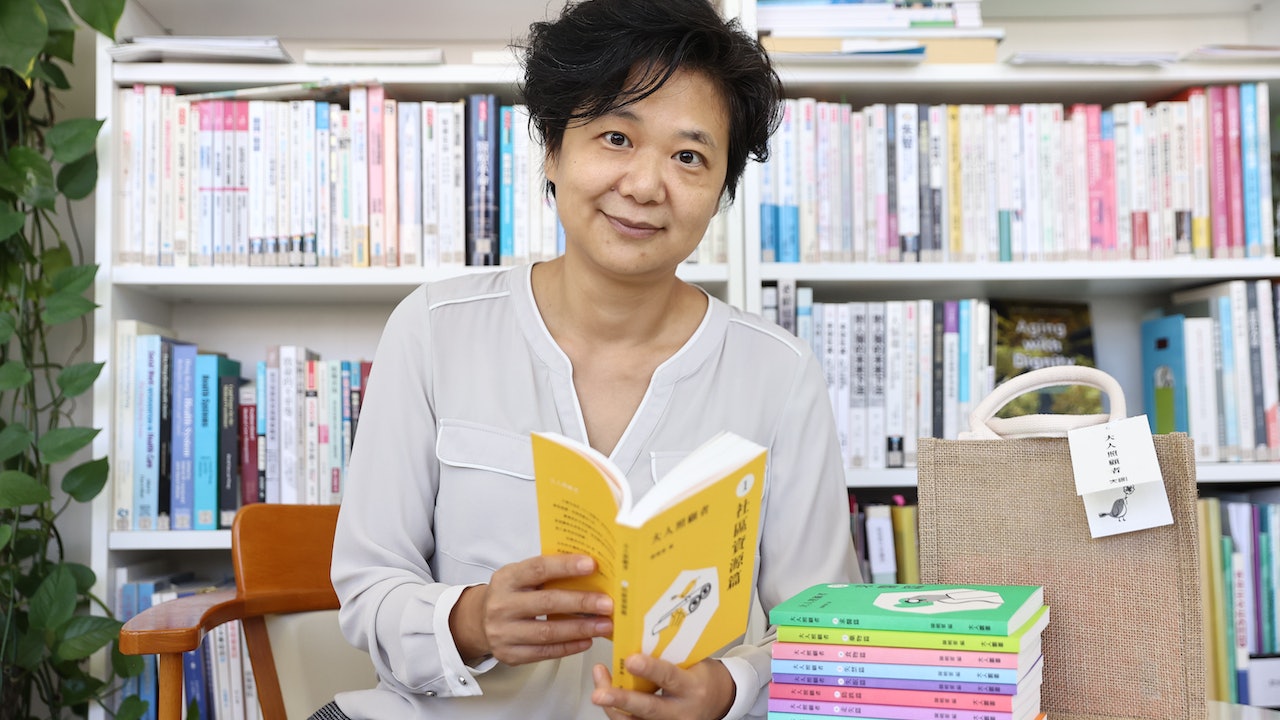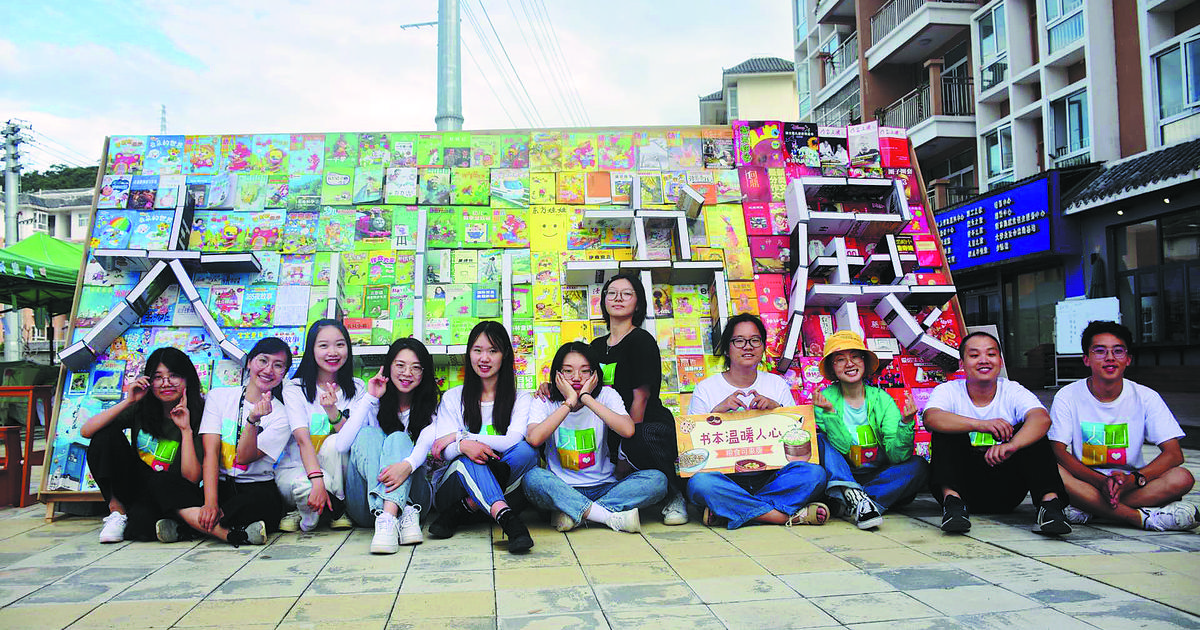Hong Kong is entering an aging society. It is estimated that by 2039, one-third of the population will be over 65 years old, and the need for care is increasing.
Caregivers often need to spend a lot of time and effort to take care of the elders in the family. Coupled with the multiple impacts of declining birth rate, immigration wave, and the imperfect care system in Hong Kong, the pressure on caregivers can "explode" at any time, and tragedies have also occurred in recent years.
Chen Xiaolei, a senior media professional, director and editor-in-chief of "Dayin", said that with policy changes, the government, social welfare sector, and foundations have also launched different new services in recent years. The reporter team integrates and compares various community resources, interviews expert advice, and caregivers Based on my experience, I compiled this into a book and launched a series of 10 books "Adult Caregiver".
Readers only need to scan the QR code to get relevant community resource information. At the same time, there are many "note slots" in the book. Readers can record the needs of the care recipient at any time. Take care of those who are being cared for.” She expects to have the “Book of Heaven” in hand, walk with the caregiver, and be able to provide what the caregiver needs.
Imperfect medical care and social welfare structures in Hong Kong make caregivers feel "explosive"
According to the book "Adult Caregivers: Community Resources", the number of caregivers in Hong Kong is as high as 1.12 million, including the elderly, the chronically ill and the disabled.
The weekly caring hours of working caregivers exceeds the median working hours of Hong Kong people by 44 hours per week, while the caring hours of non-working caregivers are as high as 80 hours a week.
Chen Xiaolei said that as the population ages, the need for caregivers increases, but a group of people who could have become caregivers have left due to the wave of immigration; coupled with the imperfect structure of the medical care and social welfare sectors in Hong Kong, caregivers are "good Difficult to take care of."
For example, she pointed out that Taiwan has a long-term care policy, "caregivers have a good system (system) to understand how to get resources", and Australia is an example. The public-private medical system in Australia cooperates well, but Hong Kong "hits the car... ...the public sector can’t wait, and the private sector can’t afford it.” In addition, the government’s “Community Care Service Voucher Pilot Scheme for the Elderly” has asset screening, and then decides how much service vouchers to give. She described it as very complicated and difficult. Taiwan and Japan have dedicated case managers who can "teach you a little bit", and various situations make caregivers feel stressed.
Ten books include teaching how to find neighbors and social resources before immigrating
With policy changes, the government, the social welfare sector, and foundations have launched different new services in the past two or three years, but Chen Xiaolei pointed out that many people do not know, "If you know how to find someone to help you, it will be easy!" Caring for the elderly is not difficult. Relying solely on the caregiver himself, it needs the assistance of people in the community, including neighbors.
Neighbors are often the first to notice "strange" behaviors such as wandering and quarreling in the elderly, and realize that they may suffer from dementia.
"Is the Neighbor Elder Alright?"
"The book mentions that neighbors can build a trusting relationship with caregivers and lend a helping hand when needed.
There is a story in which Nathalie lives separately from her mother who suffers from dementia and has two domestic helpers to take care of her mother. Nathalie also tells her acquainted neighbors about her mother's illness.
In recent years, when the housing estate needs to be inspected and the mother is noisy, the neighbors will take the initiative to inform and care for Nathalie.
"Adult Caregiver" has 10 "Books from Heaven", and "Social Resources" interviewed more than 20 institutions, integrating government and private institutions' respite and community care resources; "Seeking Doctors" and "Drugs" combine public and private How to seek medical advice and explain the ingenuity of taking medicine. Chen Xiaolei gave an example: "Explain (the person being cared for) going to the toilet in the middle of the day and going to the house. People dare not fall ill? I found out that the side effect of taking medicine before dying is diuresis. In fact, as long as Change the medicine to breakfast, and at night, you don’t have to go to the toilet all day.”
"Immigrant Parents Count?
"Introduces how children assess their parents' health and social needs, and formulate and apply for remote care arrangements, etc.
Readers can scan the QR code in the book to obtain relevant community resource information.
Readers only need to scan the QR code to get relevant community resource information. At the same time, there are many "note slots" in the book, so that readers can record the needs of the care recipients at any time.
(Photo by Lu Yiming)
The key points in the "note space" in the book make it easy for the second person to pick it up and know how to take care of it
Each book also has a lot of "note slots" for the caregiver to record the daily needs of the care receiver. Chen said that if the caregiver is not around, "the second person picks up (this book) and can take care of the care receiver." " She also pointed out that the design of the book can also be picked up with one hand, and she hopes that the caregivers will be "less stressed and easier to read" when reading.
Readers can also download the mobile app "啱思" co-operated by "Dayin" and Pok Oi Hospital on the folding page of the book, so that if caregivers encounter difficulties or share their experience, they can chat with fellow travelers on the app anytime and anywhere.
Lao Minqi, the project director of "Dayin", said that the program was launched last year, and the chat function set in it was launched in February this year. As of September, there have been more than 7,000 chat messages. Users can communicate in the chat rooms of various groups Experience, vomit bitterness, users can even post in the program to share their thoughts.
"There is no model answer (standard answer) for care work. There are many emergencies. If you have a fellow traveler to support you, you can share your actual combat experience and understand (the opponent's) difficulties." There are also different online activities for caregivers to sign up for in the program. Read the article for the Caregiver Course.
【Carers】Senior reporter Chen Xiaolei interviewed all walks of life and retired professor Ma Jiewei to talk about "unemployment"














